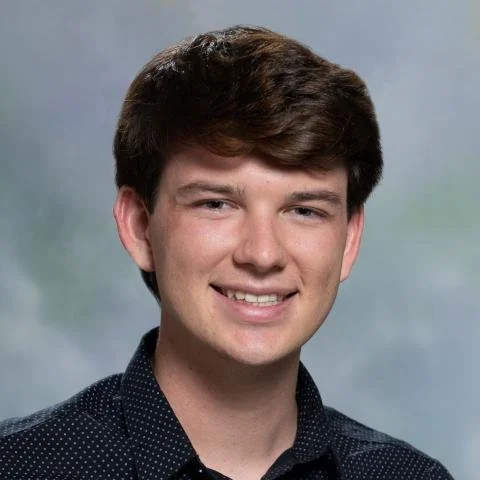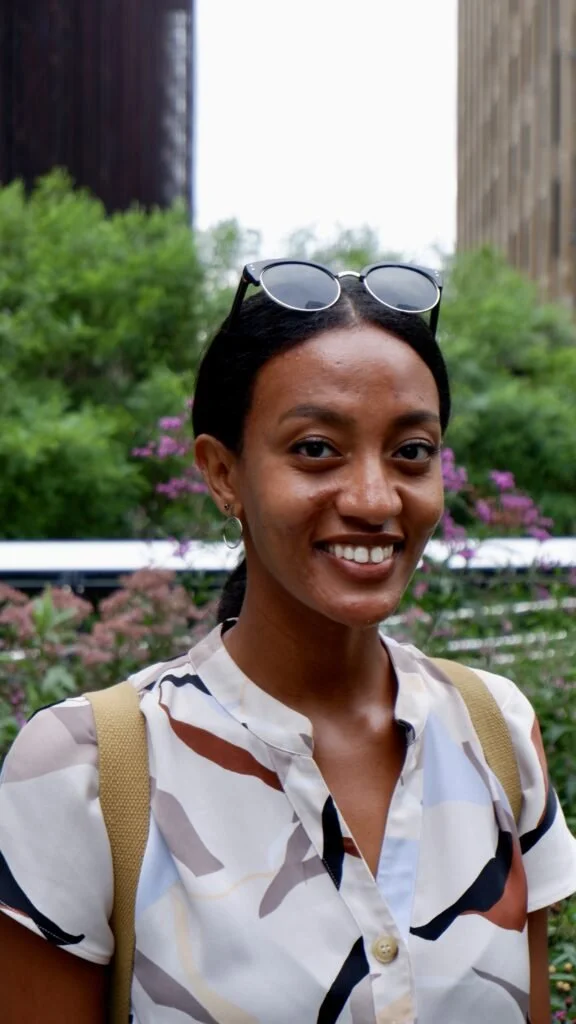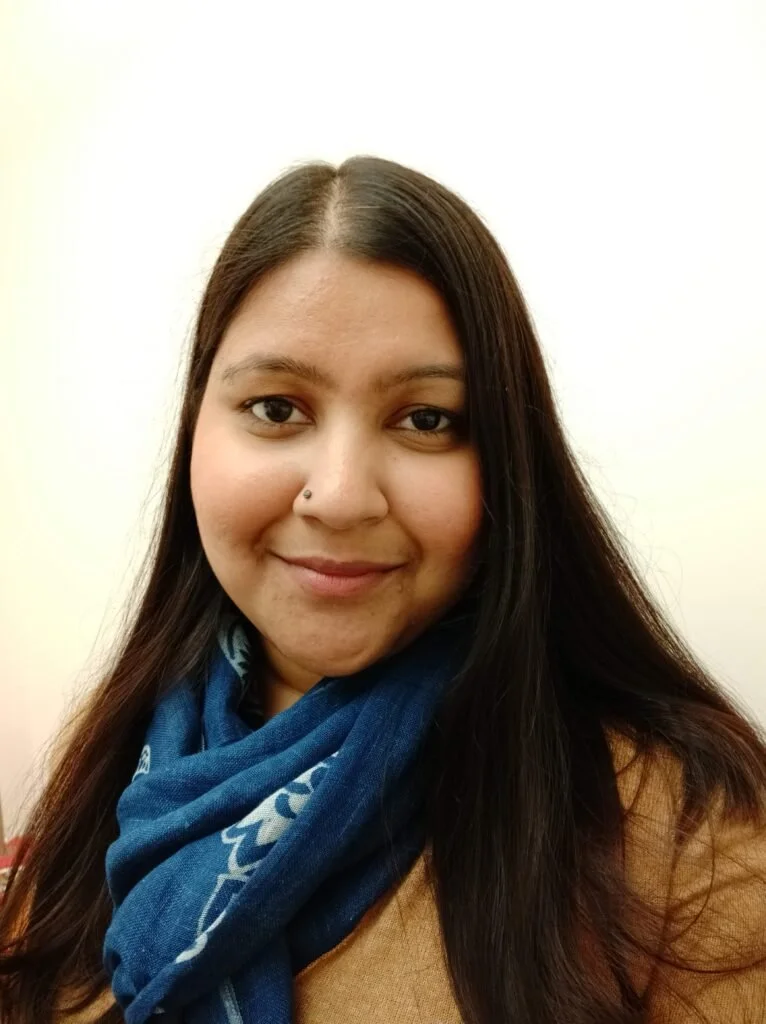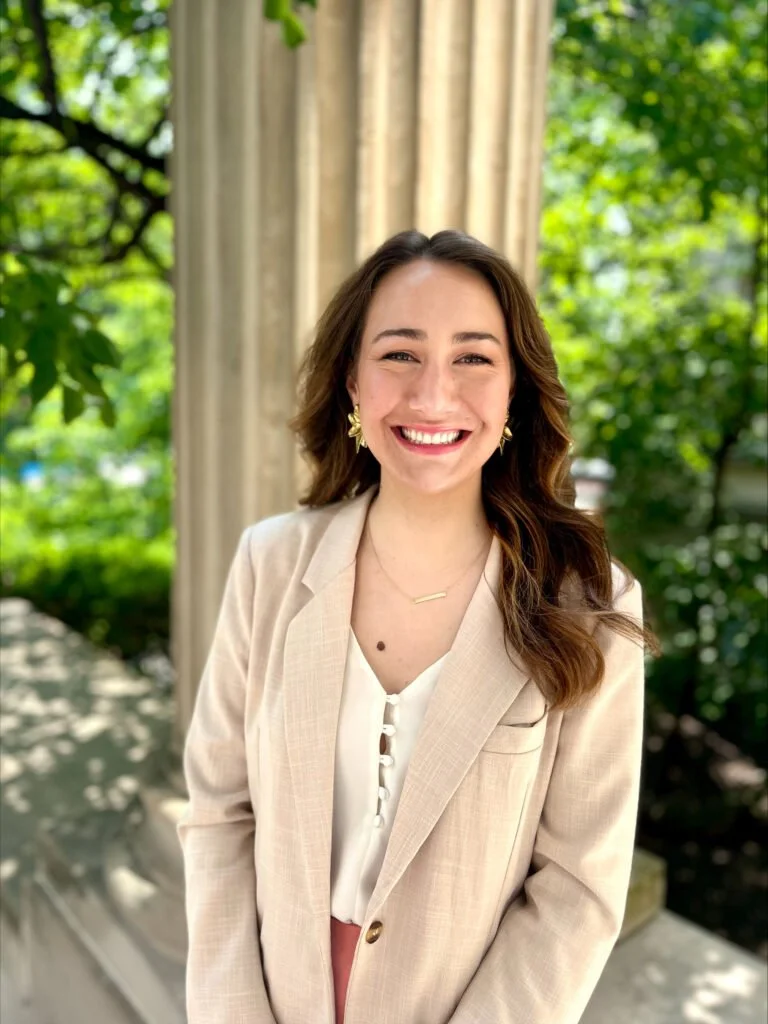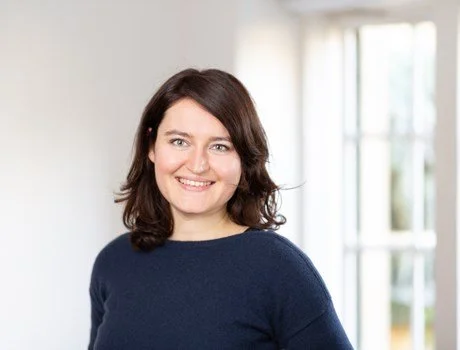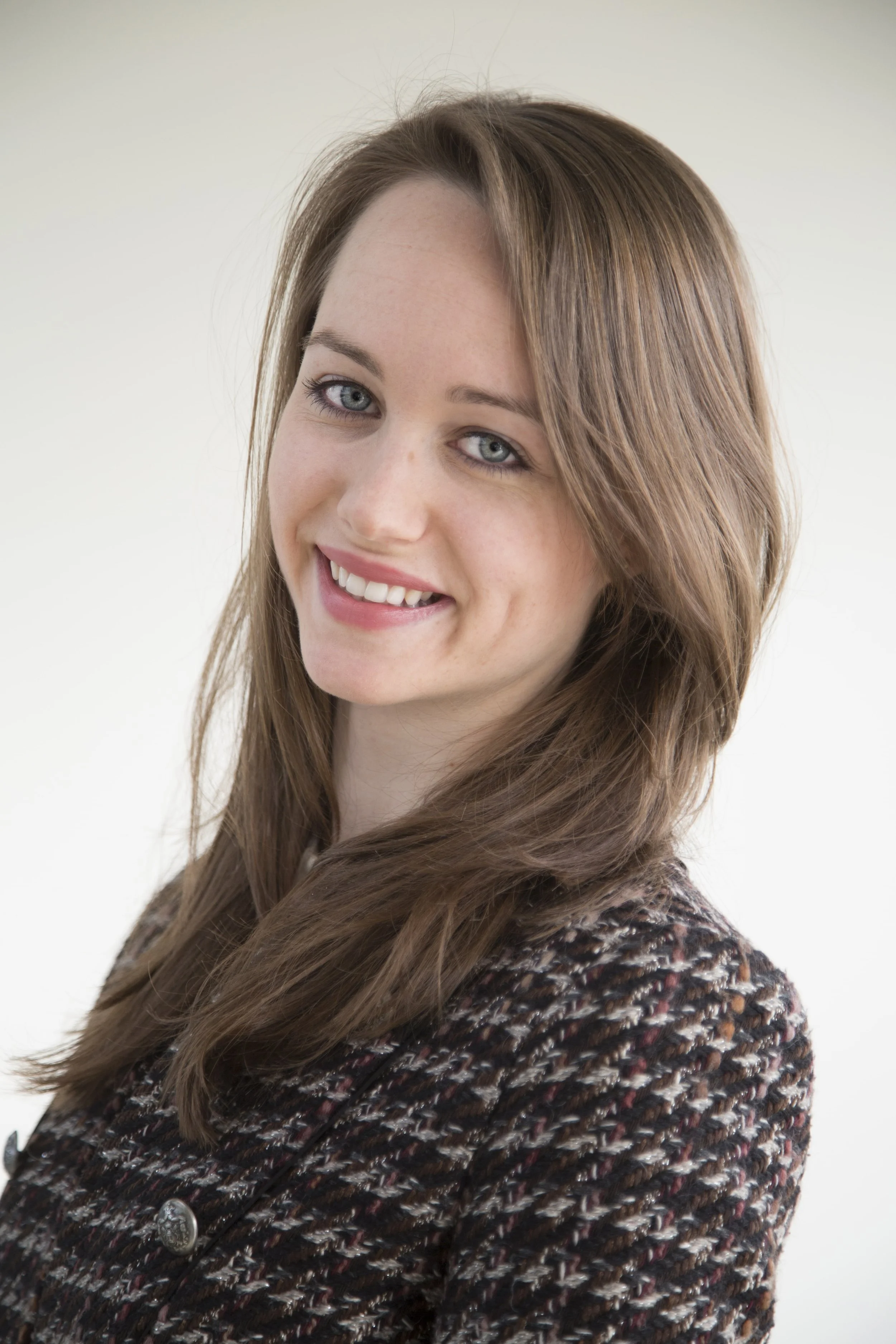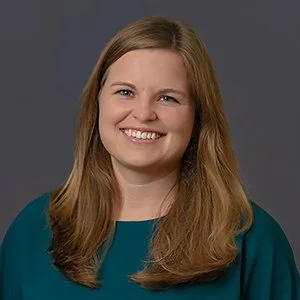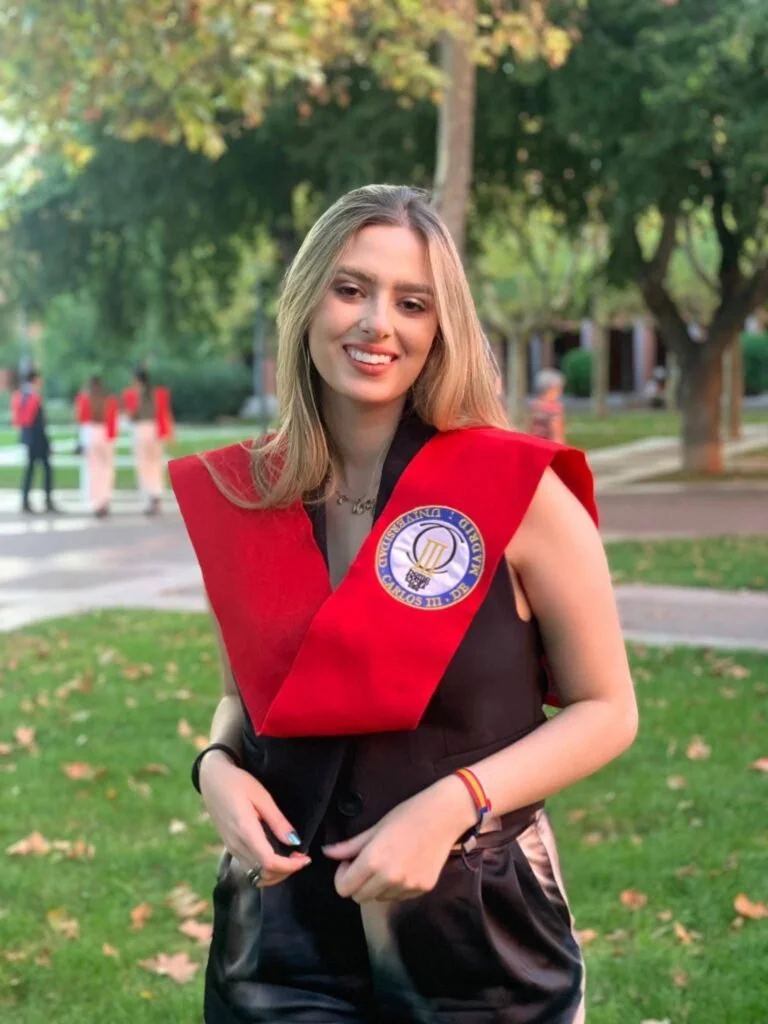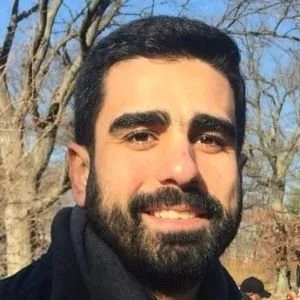Research Fellows
Alex Bruens holds two bachelor’s degrees from Florida Atlantic University and a master’s degree from the University of Arizona. Their research interests focus on the role of civil society and non-governmental organizations in development and peacebuilding after civil wars; insurgent dynamics during civil wars; state repression and social movements during and after conflict; and international peacebuilding initiatives and UN peacekeeping. As a PhD student, they are currently pursuing research on the impact of civil war dynamics and interventions on post-war state-society relations. As an undergraduate student, they participated in the only National Science Foundation conflict management and peace science research program, at the University of North Texas. Alex uses they/them pronouns.
Abrehet Gebremedhin is currently pursuing her PhD at American University’s School of International Service. Her research lies in development studies, with a regional focus on the Horn of Africa. Broadly, her research interests include critical development theory, education and health interventions for girls, the politics of education, and evaluation for development. She is also interested in the political and power dynamics of the development aid sector. She has several years of experience in the monitoring and evaluation of education, health, and gender development programs across Eastern and Southern Africa, and lived in Ethiopia for 3 years conducting large-scale surveys. She has her MA and BA in International Development from the Korbel School of International Studies at the University of Denver.
Shagun Gupta is a PhD Student at American University’s School of International Service. She is interested in comparative politics and development studies with a focus on urban governance, informality and public trust in government. Her dissertation uses survey research and quasi-experimental methods to explain variation in public trust in urban local governance bodies in Delhi, India. Prior to starting her PhD, Shagun worked with international organizations and NGOs in Myanmar and Thailand, most notably UNOPS and HelpAge International, managing monitoring and evaluation for large-scale donor funded projects.
Christina Harris is currently a PhD candidate at American University’s School of International Service. Her research interests include transitional and transformative justice; multiculturalism, (mis)recognition, and the politics of difference; post-conflict peacebuilding; international human rights and humanitarian laws; and international norms and state behavior. Prior to pursuing her PhD, Christina worked for more than a decade with international organizations and NGOs, including UN agencies, USAID-funded projects, Amnesty International USA, and Ploughshares Fund. Christina passed her doctoral comprehensive exams in the fields of International Relations (2018) and International Peace and Conflict Resolution (2019). Her dissertation research uses qualitative and interpretive methods to explore how positive peace and structural justice are envisioned and enacted in the Western settler colonial state.
Willow Kreutzer is a Post-Doctoral Fellow at American University. Her research interests include post-conflict peace agreements’ influence on positive peace; civil conflict and post-civil conflict restoration’s impact on women’s rights and gendered vulnerabilities; disaster and post-disaster effects on women’s livelihood and empowerment; and international institutions’ and countries’ treaty commitments’ influence on women’s rights. Her work has been published in Politics and Gender, Disasters, and in public-facing outlets such as The Conversation. Kreutzer received her Ph.D. in Political Science from the University of Iowa in 2023 along with a certificate in Gender, Women, and Sexuality Studies. Willow also received a M.A. in Political Science from the University of Iowa in 2020, and a B.A. in Political Science from the University of Kentucky in 2017.
Evgenija Kroeker is an International Security Fellow at the Hertie School’s Centre for International Security, and a DPhil Candidate in International Relations at the University of Oxford (Nuffield College). Her research focuses on the dynamics of global and regional decision-making in the realm of international peace and security. She is particularly interested in the selection processes that determine whether civil wars are discussed by and see peacekeeping from the UN Security Council and regional organizations such as the African Union. Prior to her doctoral studies, she worked as a Research Associate in the ERC-funded LEVIATHAN project at the Hertie School. Evgenija holds a Master of International Affairs with a focus on international law and security from the Hertie School.
Maline Meiske is a Post-Doctoral Research Fellow at the Department of Politics and International Relations at the University of Oxford. Her research interests include peacekeeping, regional conflict management, inter-organisational cooperation, and European foreign and security policy. She currently works on the ESRC-funded project ‘After Exit – The Consequences of UN Peacekeeping Withdrawal’, examining how the withdrawal of UN peacekeepers affects state capacity in formerly peacekept states. She holds a DPhil in International Relations from the University of Oxford (2019), an MPhil in European Politics and Society (Oxford, 2015), a BA in Business Administration (St Gallen, 2014), and a BA in International Affairs (St Gallen, 2013).
Julie Radomski’s research lies in development studies with a regional focus on Latin America and the Caribbean. Broadly, her research interests include development, environmental justice, global China, Latin American studies, science and technology studies, ethnography, and interpretive methodologies. For her dissertation project, she is exploring the emergence of China as a development actor in Latin America through ethnographic case studies focusing on Chinese-financed infrastructure projects in Ecuador. She has several years of experience in the non-profit sector working on advocacy relating to social and environmental issues in international development. Julie holds a Master’s in Development Studies from the University of Cambridge.
Ariana Schmidt is currently a PhD student at American University’s School of
International Service. Her research interests in forced migration and international aid
stem from five years of humanitarian aid work in Europe and the Middle East with forcibly
displaced populations. She spent the majority of her time in Iraq, arriving during the Mosul
Offensive and staying through the ensuing early years of recovery and rebuilding.
Working on an international NGO’s senior management team, she led program
development and implementation efforts including managing UN and U.S. government
funded projects. During her undergraduate studies at Wheaton College, she completed
two internships with the U.S. State Department in Washington, D.C. and Cambodia
working on economic policy and public affairs. Ariana grew up in Niger.
Helen Souki is a Spanish graduate student in the International Affairs: Global Governance, Politics, and Security Master’s Program at American University. She has a Bachelor’s degree in Political Science from Charles III University of Madrid where she developed several research projects focused on comparative political and security issues, such as the impact of aid conditionality on democracy development and the success of self-defense groups in Burkina Faso in becoming influential political actors. Her interests include intra-state conflict, terrorism and insurgency, regime transitions, and peacekeeping. She previously worked as a writing intern for The Borgen Project and published articles to promote poverty reduction and human rights. Additionally, she participated in Model UN for 10 years and was a member of student government during her Bachelor’s.
Hatem Zayed is a PhD Candidate at American University’s School of International Service. He is interested in development studies with a specific focus on NGOs, donor trends, new funding methods, civil society-state relations, and civic engagement more broadly. His dissertation research is on the pursuit of alternative funding sources, including social enterprise models, by developing non-profit organizations in restrictive civic spaces – taking Egypt as a case study. Hatem also has experience doing research on community mobilization, social accountability, youth activism, and social and economic rights. Before starting at AU, Hatem worked in local and international NGOs in Egypt – in human rights, development, and humanitarian fields – both as a consultant and as staff. Most recently, he managed the Monitoring and Evaluation unit at CARE International in Egypt.

